
Supreme Court Tells Lower Courts Not to Deny Bail As Punishment
In a judgment regarding a bail appeal filed by a man charged under the Unlawful Activities Prevention Act (UAPA), the Supreme Court of India has pointed out that bail should not be used as a punishment and clearly articulated the constitutional right to a speedy trial. The Court has reasserted a foundational principle of criminal jurisprudence: the presumption of innocence, as enshrined in the Constitution of India.

How Much Air Pollution Could Be Fatal?
A new study examining the effects of exposure to fine particulate matter (PM2.5) on daily death rates across 10 Indian cities has indicated that even modest increases in PM2.5 levels can elevate the daily death rate. The study also revealed that locally sourced pollution significantly intensifies the impact on mortality rates.

Every Day, 28 Women and 3 Girls Vanish in Madhya Pradesh
Over the past three years, a staggering 31,801 women and girls have been reported missing — that’s an average of 28 women and three girls each day, in Madhya Pradesh. This statistic, disclosed during a state assembly session in response to questions, reflects a possible human trafficking crisis in the state.

At Least 121 People Killed in Uttar Pradesh Stampede
Emerging details from media reports suggest several failings by local authorities and the police in preventing the tragedy of the stampede in Uttar Pradesh’s Hathras district, where at least 121 people, mostly women and children, had died as of July 3.

Could New Criminal Laws Raise the Risk of Wrongful Arrests?
The provision for preventive arrest under Section 172 of the new criminal code, the Bharatiya Nagarik Suraksha Sanhita (BNSS), raises significant jurisprudential concerns, especially when compared to existing legal standards and principles of justice and fairness as established in landmark cases and constitutional doctrines.

Why Indians Spend Twice as Much on Weddings as on Education
In India, the wedding industry is a behemoth, tipping the scales at a staggering 10 trillion rupees, or $130 billion, according to a report by investment banking and capital markets firms. The average Indian family, the report suggests, spends twice as much on tying the knot as they do on educating the future knot tiers. This confirms our knowledge and experience that Indian weddings are mega-events, rivalling the GDP of some small countries. But should we be content with and continue this trend?
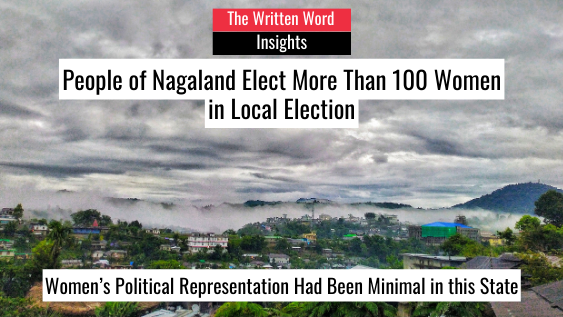
People of Nagaland Elect More Than 100 Women in Local Election
The people of Nagaland have elected 102 women to its civic bodies, marking a significant milestone in gender representation in local governance. The Urban Local Body (ULB) elections of 2024 saw an enthusiastic participation from female candidates, with women claiming over 37% of the available seats in the polls held on June 26.
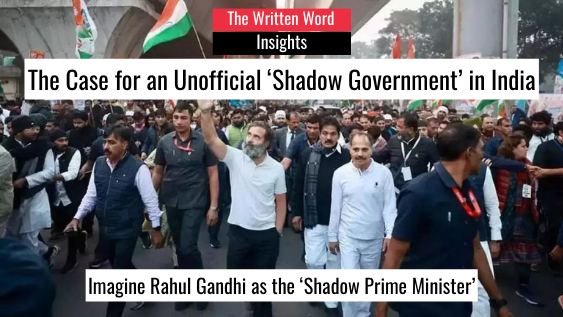
The Case for an Unofficial ‘Shadow Government’ in India
The political landscape that has emerged after the 2024 Lok Sabha elections presents a compelling case for the introduction of a de facto “shadow government,” led by Rahul Gandhi, the newly appointed Leader of Opposition. If you are hearing the term “shadow government” for the first time, it refers to a group of politicians who belong to the opposition in a parliament and are part of the “shadow cabinet” with the responsibility to critique the policies and actions of the sitting government.
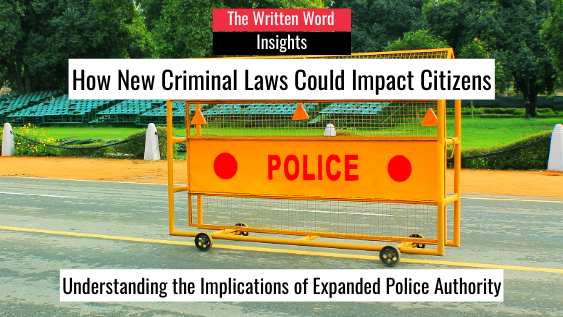
How New Criminal Laws Could Impact Citizens
As India prepares to replace long-standing British-era criminal laws with the newly introduced penal code, criminal procedure code and the law on evidence, which will take effect on July 1, concerns are growing about the potential consequences for ordinary citizens.
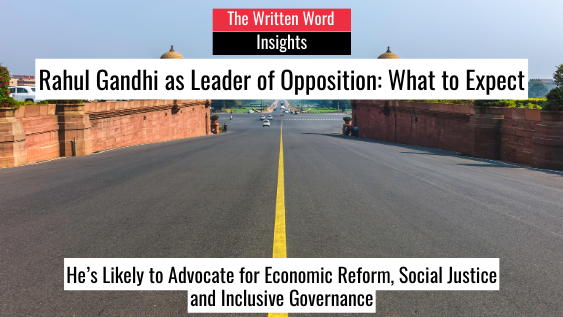
Rahul Gandhi as Leader of Opposition: What to Expect
Rahul Gandhi, a prominent leader of the Congress party, has been appointed as the Leader of Opposition in the Lok Sabha, with the INDIA alliance having significantly increased its parliamentary seats to 237, up from the 91 seats held by its predecessor, the United Progressive Alliance, in the previous election cycle. What does this shift in the parliamentary landscape mean for us, the citizens?

Do Married Women Have the Right to Work? Not at This Apple Supplier in India
At the Foxconn flagship iPhone assembly plant in southern India, married female candidates are systematically excluded from employment opportunities, contradicting both Apple’s and Foxconn’s policies which state that workers should not face discrimination based on marital status, suggests an investigation by Reuters.

Supreme Court: Did Delhi LG Authorise Felling of Trees Contrary to Directives?
The Supreme Court has called for clarification from the Delhi Development Authority (DDA) on whether its chairperson, Lieutenant Governor (LG) Vinai Saxena, directed the felling of about 1,100 trees in Delhi’s ridge forest area for a road widening project, a move potentially contravening the court’s standing orders in the case Bindu Kapurea v. Subhasish Panda.

Do Prisoners Retain Their Right to Human Dignity?
Political activist Umar Khalid, incarcerated in Delhi’s Tihar Jail under the Unlawful Activities (Prevention) Act (UAPA) since 2020 due to allegations of involvement in the Delhi riots, offers a harrowing description of the living conditions during North India’s intense heat wave. Khalid’s account sheds light on the widespread suffering of numerous prisoners, particularly undertrials such as himself, who are legally presumed innocent until proven guilty.
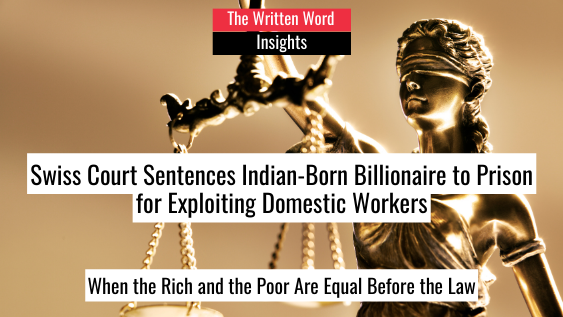
Swiss Court Sentences Indian-Born Billionaire to Prison for Exploiting Domestic Workers
A court in Switzerland has handed down sentences to four members of the Hinduja family, one of Britain’s wealthiest. This case, involving accusations of exploiting Indian staff at their Geneva mansion, reflects the principle that justice does not bow to wealth or status.

3 Foreign Journalists Leave India in 5 Months After Permit Refused
Since February 2024, three foreign journalists have allegedly been compelled to leave India following the refusal of their journalist permits, which appears to be a concerning trend for press freedom in the country. French journalist Sébastien Farcis, alongside his colleagues Vanessa Dougnac, also from France, and Avani Dias from Australia, represents the latest in a series of foreign correspondents allegedly facing significant barriers in the country.

What’s Behind Millionaires’ Exodus from India?
Around 4,300 Indian millionaires are expected to migrate out of India in 2024, marking it as the third-highest nation in terms of millionaire exodus this year, according to a report by the investment migration consultancy Henley & Partners. The report identifies the United Arab Emirates as a top destination for these affluent individuals. So, what prompts these millionaires to leave India?
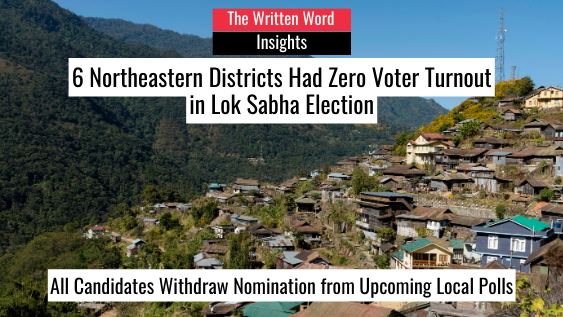
6 Northeastern Districts Had Zero Voter Turnout in Lok Sabha Election
Residents of six districts in a northeast Indian state abstained from voting in the 2024 Lok Sabha election and have announced a boycott of the upcoming local elections scheduled for June 26, marking a profound statement against what is perceived as a long-standing governmental neglect.

Local Muslims Led Rescue in Kanchanjunga Train Accident
Recent calamities and tragedies in India, including the Kanchanjunga Express train accident in West Bengal, show the instinctual response of Indians to help one another in times of disaster. This behaviour stands in stark contrast to the divisive tactics employed by certain political figures along religious and caste lines, demonstrating that inherent unity transcends manufactured divides.

Aussie Media Claims India’s Covert Activities Risk Australia’s National Security
Australian national public media has joined Canada and the United States in expressing serious concerns over India’s alleged covert operations on foreign soil, which they claim threaten their national security. Australian Broadcasting Corporation (ABC) has accused India of espionage and undermining political integrity in Australia.
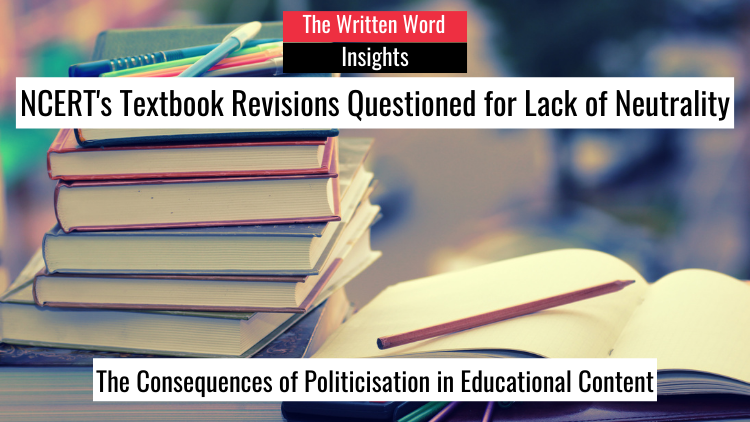
NCERT's Textbook Revisions Questioned for Lack of Neutrality
The revisions in the National Council of Educational Research and Training’s (NCERT) Class 12 political science textbook significantly omit historical events related to Ayodhya, raising questions about the political neutrality of the textbook’s content. The revised textbooks, which were introduced into the market recently, have sparked controversy, particularly regarding the depiction of the Babri Masjid and key political events surrounding the construction of the Ram Janmabhoomi Temple.
